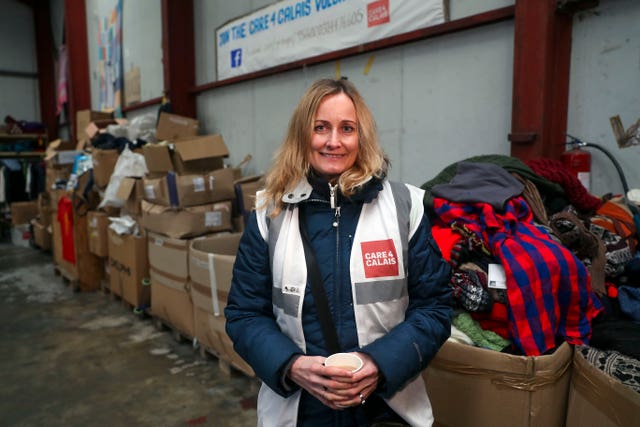Refugees housed in an ageing military barracks say they feel like they are in a “prison” at risk of coronavirus despite the Home Office claiming it has made improvements to the controversial site.
People living in Napier Barracks in Kent – many of whom risked death in the English Channel to get to the UK – sleep in 20-bed dormitories separated by curtains.
The military site in Folkestone dates back more than 130 years and its use to house refugees has been fiercely criticised by campaigners, particularly following a major outbreak of coronavirus last year.
As the Home Office prepares to use another military base in nearby Manston to process asylum seekers, the PA news agency heard from a number of Napier residents who spoke of poor conditions and safety fears.

“We are always at risk”
One man who has lived at the barracks for six weeks said:
I can tell you Napier camp it’s a very bad place for living.
You don’t have a room alone, you can’t go outside for a long time. It’s very bad because you think it is a prison.
He said he does not feel safe from Covid-19 at the barracks, adding:
Every time, there are three or four buildings in the camp in quarantine.
Another who had been there for five weeks said the site is old and unclean.
He added:
It is not safe because we have no doors – we are always at risk.
One man who arrived at Napier Barracks in the past two weeks said staff and security were friendly and polite. But he added that bathrooms are “dirty” and said he does not feel safe in relation to Covid-19.
Others spoke about difficulty sleeping in the busy dormitories.
People coming to the UK for safety deserve better
A Home Office spokesperson said:
We provide safe accommodation for asylum seekers who would otherwise be destitute, including 24/7 access to healthcare.
We have made significant improvements to Napier Barracks in the last year and continue to do so, including more recreational and outdoor activities, additional coronavirus tests and reduced capacity.
Our New Plan for Immigration will overhaul the broken asylum system. We will welcome people through safe and legal routes whilst preventing abuse of the system.”
But Clare Moseley, founder of refugee charity Care4Calais, which has supported people living in Napier Barracks since it opened, said:
Institutional accommodation that is set far from local communities can never be the right place for people who have come to the UK in need of safety. It is essential that they can access healthcare, faith centres and other amenities, and integrate within society.
















